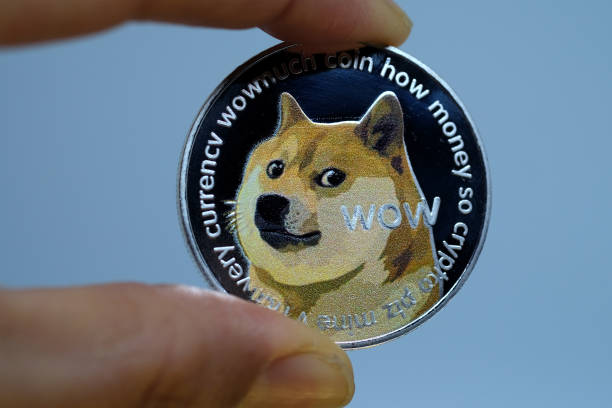Finance professor David Yermack reviews the characteristics of money and argues that Bitcoin cannot be considered as such for multiple reasons.
In an interview with The Conversation, New York University Stern School of Business finance professor David Yermack expressed the 3 attributes of money as being a unit of account, a medium of exchange and a store of value. "If those are the 3 benchmarks, Bitcoin doesn't seem to perform very well in any of them," said the professor.
- David Yermack
A store of value
"There's a lot of basic financial data that suggests that, in terms of being a store of value for instance, Bitcoin is very volatile on a day to day price," argued Yermack.
The professor noted that Bitcoin was probably more volatile than any other financial assets, adding that the digital currency tented to fall almost 10% on a given day, which makes it much more volatile than any other currencies that are being traded on the markets around the world, as well as gold and shares of stock.
Thus, Yermack said Bitcoin was "risky", a characteristic which we would not usually associate with money.
A medium of exchange
Yermack pointed out the low number of merchants actually accepting the cryptocurrency, adding: "The numbers are said to be growing but there are many parts of the world where Bitcoin has no presence at all."
The professor noted that even in metropolitans and big cities, only a few merchants accepted Bitcoin, qualifying the numbers as "infinitesimal".
"Calling it a medium of exchange is exaggerated," said Yermack, stressing that searching of those merchants required a lot of legwork, traveling and researches.
A unit of account
With Bitcoin's price at about 500 USD, Yermack said that day-to-day transactions involved dealing with decimals, stating, "people aren't too good with working with decimals". For instance, he said that "a cup of coffee may cost you 0.01 BTC," which makes it difficult to make price comparisons.
Yermack said that technological improvements were required to reach global acceptance. He stated that digital wallets were difficult to use and that Bitcoin developers should work on making softwares and applications that "regular people [that are] not confortable with computers would be able to install, maybe on their mobile phone, and use easily."
The professor also noted that security was a real concern and that developers should add more security in their products:
"The hacking problem has been pretty serious and people can steal bitcoins pretty easily, I think that's [going to] make folks really uncomfortable. So I think on the software development side, you really need some improvements in the security coding and in the language bitcoins are being transferred."
Regarding volatility, Yermack said that Bitcoin's price needed to stabilize. He added that until a significant number of people are using Bitcoin, the digital currency won't be "taken as seriously as money".
Finally, Yermack noted that Bitcoin was still mostly use as a way of gaining publicity as well as attracting a certain segment of the market. He mentioned the case of computer manufacturer Dell who recently announced accepting payments in bitcoins, noting that it could only help the company in attracting more customers from the "tech crowd":
"They want to talk about it and get the benefit of the buzz, but it creates a number of problems for a business if people want to actually spend the bitcoins. The business is in risks and has to work with digital wallet company and so forth."
Yermack said he currently has a student team working on a one year Bitcoin project. Through their retailer survey, the team discovered that 60% of merchants instantly converted their bitcoins into another currency. However, Yermack added that about 1/3 of them were hanging on their units:
"But others are really committed in doing business with Bitcoin on a day-to-day basis. [...] I was surprised that they had found any businesses at all that hang on to their bitcoins, but they are out there. [...] They're putting themselves at risks, but at the end, who knows, they're making profits out of it."
Did you enjoy this article? You may also be interested in reading these ones:
- US District Judge: “Bitcoin is Money”
- Australian Tax Official: Bitcoin Could Be ‘Money’ if Growth Continues
Download our sleek and user-friendly free iOS app so you never miss the latest stories!











